From LA Weekly, April 12, 2012:
“Shortly before Christmas, director Edgar Wright received an email inviting him to a private screening of the first six minutes of Christopher Nolan’s new Batman movie, The Dark Knight Rises. Walking into Universal CityWalk’s IMAX theater, Wright recognized many of the most prominent filmmakers in America — Michael Bay, Bryan Singer, Jon Favreau, Eli Roth, Duncan Jones, Stephen Daldry. If a bomb had gone off in the building, he thought, it would have taken out half of the Directors Guild of America.
“It was a surreal experience because it felt like we were all going to get whacked,” Wright recalls.
As the directors settled into their seats, Nolan addressed them with words ripped from the plot of an old Batman serial.
“I have an ulterior motive for bringing you here,” the British director announced.
And then he made a plea for 35mm film.”

My son is 8, he has an early bedtime that makes films with a late start difficult especially on a school night but I wanted nothing more than to have him sitting next to me; The Hollywood Theatre, Portland’s beloved repertory theatre was playing KING KONG Vs. GODZILLA (1962) in 35mm. The clicking sound of the projector, the cry of Kong and the roar Godzilla gave me goose bumps. This was everything I dig about The Hollywood; classic films in 35mm punching the audience in the eyeballs with all kinds of amazing images. If the studios have their way however, 35mm will be a relic.
The studios have declared war on 35mm but like any good story a hero has risen. She doesn’t come from a far off planet, isn’t the daughter of a god, but soon the misfits of cinema will be chanting the name of Julia Marchese; a hero in 35mm. After the movie studios decided to stop renting 35mm films to revival houses and instead move to digital, Marchese brought attention to the decision by collecting over 10,000 signatures on the “Save 35mm” petition site. Now it’s time for the next step. With The New Beverly and film community behind her, Marchese is raising funds through Kickstarter for a new documentary called OUT OF PRINT.
“This is an important documentary,” writes Marchese. “A passion project that aims to protect and cherish your movie memories, by protecting revival cinemas like the New Beverly, which play a vital and important role in keeping the old memories alive and available in our rapidly changing world. At the New Beverly, it’s not about the money; it’s all about the movies and the people who love them. Here’s the crazy thing, your movie memories are under siege and the threat is real and imminent. Revival theatres like the New Beverly are now an endangered species. We must act now to save the cinemas and protect our past.”
Along for the ride will be Edgar Wright, John Landis, Patton Oswalt, Allison Anders, Joe Dante, Rian Johnson, Mark Romanek and others. If you care about 35mm and respect the rich traditions of revival houses, it’s time to stand up and help Julia hit her goal on Kickstarter (fundraising ends on May 24th). Hopefully the revolution will be coming soon to your screen on 35mm. We had a chance to talk to Marchese about the new flick. We couldn’t be happier to have one of our new heroes as Featured Filmmaker 26.
FEATURED FILMMAKER CHAPTER 26:
JULIA MARCHESE
HOSTESS AT THE NEW BEVERLY, ACTRESS,
DOCUMENTARY FILMMAKER
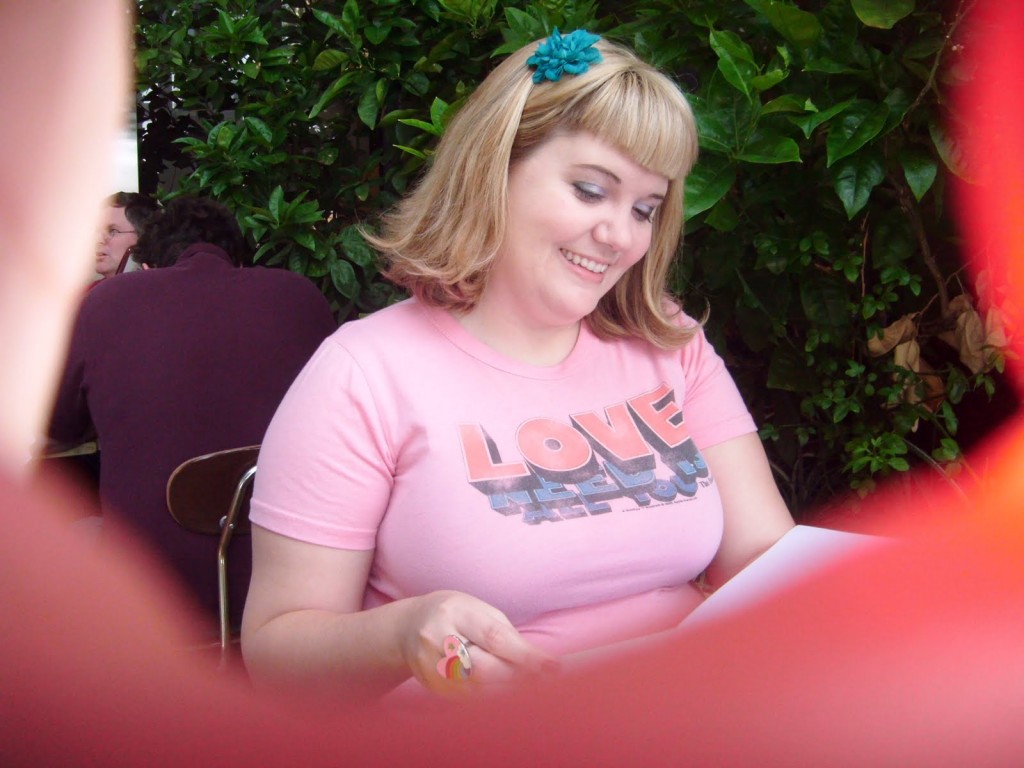
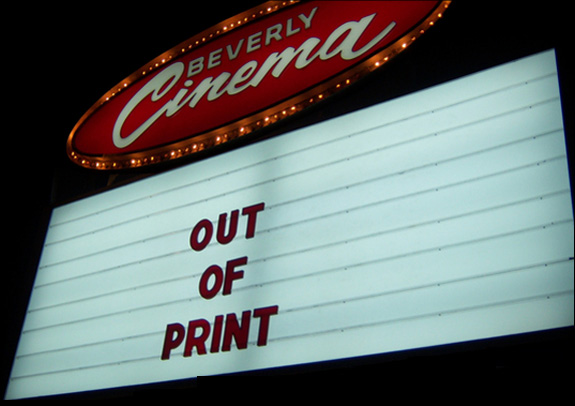
DAILY GRINDHOUSE: So what was the first film you saw in the theatre?
JULIA MARCHESE: My first time in a theatre was CLASH OF THE TITANS when I was a year old and I freaked out. I didn’t even get a chance to get to the Harryhausen stuff. It was the very beginning where there’s a flood and everything is being washed away, I just freaked out and they had to take me out of the theatre. That was the very first one and I don’t remember it that well obviously. As early as I can remember though I have loved going to the movie; It really wasn’t until college that I started loving film as art. I am an actor as well so I was a drama and film major in college. The program I was in was the study of film, not filmmaking. We would spend all day watching incredible movies and it just made me really happy. I had moved to Los Angeles to become a film actor and that has always been the goal. Film has always been my first love.
What are some of your favorite films?
I am a big fan of Charlie Chaplin, I think THE CIRCUS (1928) is an amazing film. THE BREAKFAST CLUB though is my favorite film of all-time. That’s because it shows all you need is a great script, great actors, and a director. You don’t need anything fancy. I have loved that ever since I was a kid.
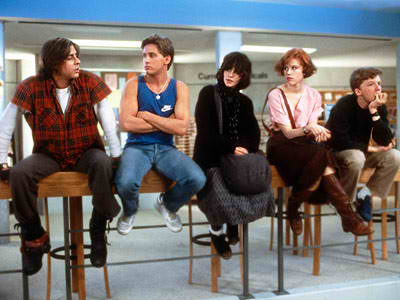
I was just telling somebody the other day that I miss the kind of films that John Hughes made. You can’t really point to anybody making film right now and say “this person is making John Hughes kind of films.”
I agree. 80s teen movies are one of my favorite genres. I miss them because there was genuine sincerity with those movies. Everything now has to be cool and removed. Movies like PRETTY IN PINK where Molly Ringwald is obsessed with prom; it was just a very genuine thing. I don’t like this new thing where it always has to be a nod and a wink to the audience. Can’t we just have a movie where somebody wants this thing and then gets that thing? It shouldn’t be that hard, it’s a feeling in movies that are gone now.
I worked in video stores from about 1989 to sometime in the late 90s, Everybody kind of had their go to flicks when one of the masses came and asked what was good and new and I always loved turning those guys on to stuff that wasn’t some huge release. I remember finding ONE FALSE MOVE in like 93 and just working the shit out of that title. You worked in a video store and kind of did the same thing with SAY ANYTHING, talk to us about that and what that film meant to you.
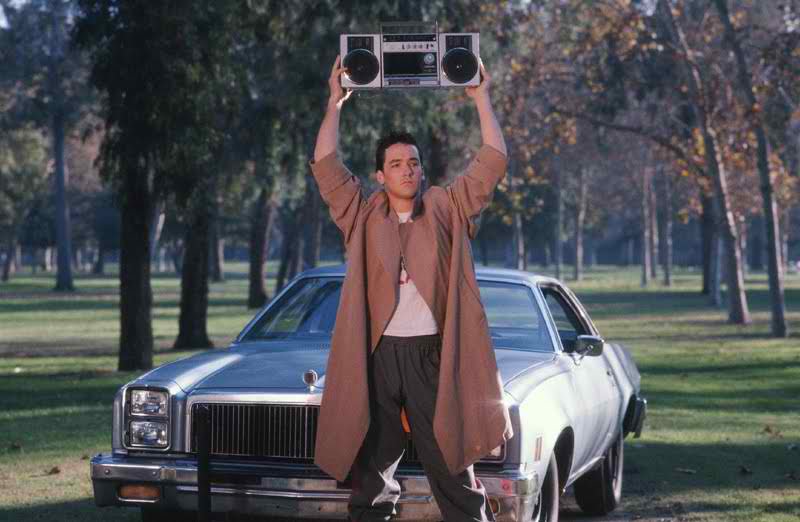
Cameron Crowe is one of my heroes; I think his films are really incredible. When I saw WE BOUGHT A ZOO it made me cry like four times, at the end of the film my friend asked me what I thought and I just burst into tears because it was so touching. It’s something he does so well as a filmmaker where he borders sappiness, but never spills over. I saw SAY ANYTHING in high school and just thought it was a fantastic film and I was just annoyed that everybody just wanted to watch what was new and I was excited to share that movie with people just because it touched me.
John Cusack is a really unconventional lead for a film and to put him in this kind of story I thought was pretty gutsy but I think the audience really responded to him in part because it felt so real.
Oh I agree. I mean every woman in our age bracket is in love with Lloyd Dobler and John Cusack. Lloyd is remarkable but he’s remarkable because he’s just a really nice person.
So walk us through your move to Los Angeles and how you found The New Beverly.
I moved to L.A. in 2001 and almost immediately I found a New Beverly calendar and I knew that I needed to work there. So I went over and asked Sherman Torgan, our original owner [Torgan passed away unexpectedly in July of 2007] for a job and asked that same question every time I went in until he hired me in 2006. It was and is a place I connect with, it’s a place that is about film and not about money. It just started from there.
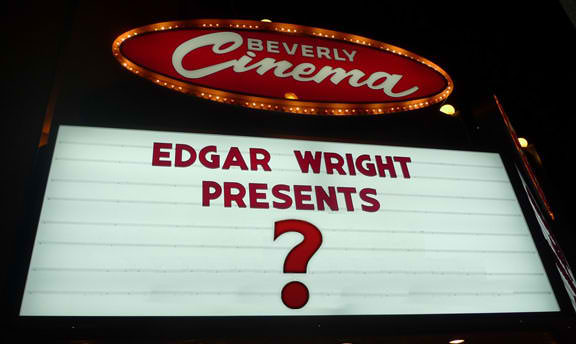
You started the guest programming sometime in 2007 and I really dig the idea of having people come and talk about films that they admire or that changed their life. Tell us how that got started.
I started the guest programming in 2007 with Edgar Wright [The Wright Stuff]. It’s really low-key, it’s just not about putting the presenter in a really nice chair with a glass of water talking about the film, it is just about you and them, very relaxed.
Last November you started a petition that went viral; it was a campaign to save 35mm, kind of a precursor to your movie. What was the spark that lead to that?
Well last November we received a letter from one of the major studios saying that they were going to stop making 35mm prints at the end of the year. It doesn’t directly affect us because we’re a revival house; it was more aimed at first run theatres. But if you look down the line it will eventually get to us; studios are going to look at these warehouses full of 35mm prints and wonder why they’re keeping them. There are only a handful of revival cinemas across the country; why are we keeping these just for them? So, the petition came out of that nervousness; I wanted to get a bunch of film lovers together and show the studios how important this was to us. I can’t stop the digital conversion but I can try and keep them away from destroying the 35mm prints so they continue to be available for revival houses.
In addition to all of that I am nervous for the little guys. If you’re a single screen first run theatre in Missouri and you’re struggling to just get by then that digital conversion is going to kill you; that projector is over $200,000 and they can’t even come close to affording that.
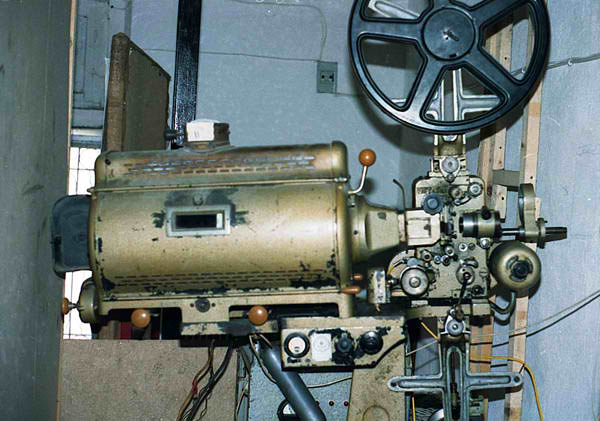
Especially considering how lean repertory houses run to begin with; most have a budget that is only $50,000 give or take.
Exactly, and also revival cinema is so important. To see a film on 35mm in a theatre with an audience the way it was meant to be seen is just such a unique experience. If you come to The New Beverly you can see CASABLANCA on the big screen, and see Fellini and Hitchcock and when you see those on the big screen it’s going to change your life, that’s just how it is. If this were a different medium like books and someone decided that they were just going to burn the first editions because now people can just have those copies digitally people would freak out but because it’s film and people don’t really understand it, it doesn’t get the attention it deserves.
You have this place where 30 years ago it would have been very common place. Now it’s completely unique; you have these people that come every night, film kids, and directors, all to just watch movies and talk about them. This is a different type of experience; you don’t just watch these movies and then go home.
Have you heard about the story with Chris Nolan where he brought in all these directors to debut six minutes of THE DARK KNIGHT but before he played the footage he told them he really wanted to talk to them about how important 35mm was?
Yeah, that was an LA Weekly story and I was actually on the cover of that.
Oh that’s right, now I remember seeing your picture on it and inside so of course you know that story. So do you have a read on what directors are thinking when it comes to 35mm? It seems to be all over the map; you have some directors like Nolan who proudly states that he will never move to digital and then you have people like Scorsese who says that everything he shoots from here on out will be in 3D and the nature of 3D now demands digital.
It’s hard because if you’re a studio director there should no reason to not shoot in 35. If you’re an amateur director then I can absolutely understand the need to shoot in digital. A lot of the directors I talk to are very committed to shooting on 35mm but the studio is almost taking away that choice from them. I was really happy that Christopher Nolan said something because we needed that. I just don’t have a lot of input from that side; I know we won’t have 35mm prints anymore but will the studios also tell the directors they can’t shoot in 35 anymore? I don’t know. I was talking to Joe Carnahan about it and THE GREY was shot on 35 and he said that if they [the studio] told him he couldn’t shoot in 35 he didn’t know what he would do. Why do it if you can’t do it the way you want? This is something that at first glance it seems like a one note problem but then you look at the ramifications and how it spreads out and eventually affects everyone. I don’t want to say anything bad about Scorsese but he is the head of the film preservation society; to say on one hand we need that and then on the other to say I am going to shoot on digital seems kind of hypocritical to me.
Obviously one of the things that’s missing with digital is the human touch. Why is that so important to the overall theatrical experience?
Because people don’t know how much work goes into the job of a projectionist? They check the print before they show it, then they have to cut and splice anything that needs fixing, then watch the film as they show it to make sure everything is running okay and do the change overs. Even if there are mistakes that is one of the beauties of film; there are imperfections. When you watch digital someone is pushing a button and walking away. It’s different and cold. In the last week at the Arclight they were showing a DCP [Digital Cinema Package] of RAIDERS OF THE LOST ARK and they couldn’t find the key code to unlock the file. The theatre was full, everyone was waiting, and they had to tell everyone that screening was canceled. I went to a screening recently of THE SOUND OF MY VOICE and they told me that the DCP had a flaw in it; they sent that back and they made a new DCP from the master but that one had a glitch as well and so this isn’t something that’s perfect. There are still going to be problems. Technology is changing so fast; if I am a small theatre and dump my money into digital projection and then something else comes out which requires another upgrade then where do I go? Everything is just going to keep upgrading and upgrading. 35mm has been the same format for the past 100 years.
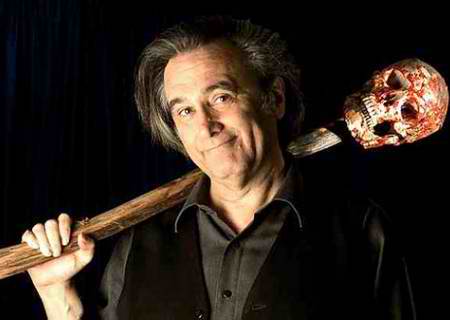
Well you are embarking on a pretty harrowing mission to save 35mm through the documentary OUT OF PRINT which is raising funds through Kickstarter right now. Are the directors who come into The New Beverly all on board?
Oh definitely. Joe [Dante] sends me articles all the time whenever there is a DCP fail and he’s like “Yea, another one!” There is just a lot of solidarity around this and people want to talk about it and are standing behind me. It is such a wonderful feeling to have these people in my corner.
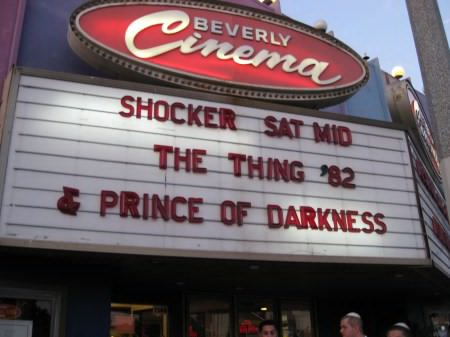
In your announcement video on Kickstarter you got pretty emotional when you were talking about The New Beverly and what that place meant to you. I found that to be really touching because I know the film crowd here in Portland for instance feels the same way about The Hollywood Theatre. Can you talk a little bit about what The New Beverly means to you on a personal level?
It is my favorite place in the entire world. I feel so lucky to be able to work there. It’s something that has negative aspects as well. If we show a film that people don’t show up for or if something goes wrong I take it really hard and that can be frustrating. I have cried about the theatre more times than I can count. I want it to be around forever and give the feeling that it gave me to other people. I was going there for 5 years, I have been working there for 6 years, and I don’t know if anybody feels the way I feel about it.
SPECIAL FEATURES
OUT OF PRINT – KICKSTARTER CAMPAIGN
http://www.youtube.com/watch?v=HxfKKIrg03w
SEE YOU ON FORTY DEUCE,
G
- [THE BIG QUESTION] WHAT’S YOUR FAVORITE FEMALE ENSEMBLE IN MOVIES? - July 22, 2016
- [IN THEATERS NOW] THE BOY (2016) - January 24, 2016
- Cult Movie Mania Releases Lucio Fulci Limited Edition VHS Sets - January 5, 2016

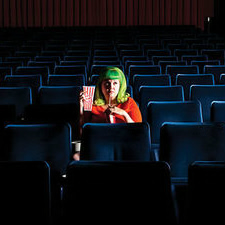




No Comments